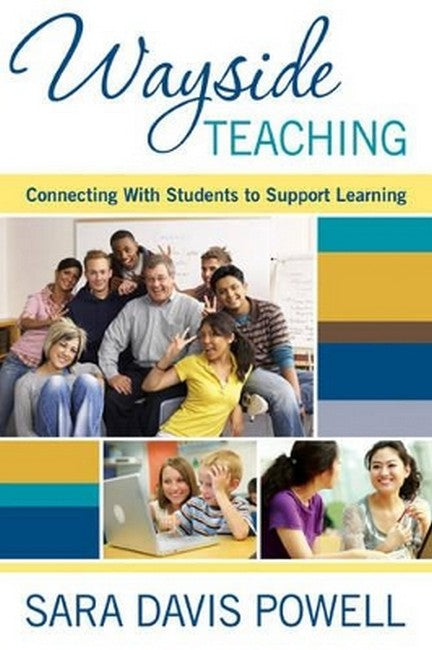Sara Davis Powell is a teacher-from elementary, middle, and high school classrooms to teacher preparation as a professor and chair of the Department of Education at Belmont Abbey College in North Carolina. She is an advocate of active student engagement, emphasizing a balance of theory and developmentally responsive and academically rigorous practice. She is involved in local classrooms through the facilitation of professional development, supervision of clinical interns, and research and writing about a variety of education issues. She is also a frequent speaker at regional and national conferences, where her enthusiasm for teaching and students has proven contagious. Powell's PhD in educational administration, supervision, and curriculum development is from the University of Colorado at Denver. Her most recent books include An Introduction to Education: Choosing Your Teaching Path (2009) and Introduction to Middle School (2nd ed., in press).
Request Academic Copy
Please copy the ISBN for submitting review copy form
Description
List of Figures Preface Acknowledgments About the Author Introduction: What Is Your Current Wayside Teaching Profile? Graphic View of Your Current Wayside Teaching Profile 1. What Is Wayside Teaching, and Why Does It Matter? What Is Wayside Teaching? Why Does Wayside Teaching Matter? Concluding Reflections 2. 12 Components of Wayside Teaching: Attitudes, Approaches, and Actions Component 1: Know Your Students Component 2: Practice Little Gestures That Matter Component 3: Reveal Your Personal Self Component 4: Create and Maintain an Inviting Classroom Component 5: Promote a Culture of Acceptance and Compassion Component 6: Help Students Find Their Voice Component 7: Learn to Listen Component 8: Speak Carefully Component 9: Teach Skills That Help Students Become Autonomous, Not Anonymous Component 10: Build Resiliency Component 11: Encourage Imagination and Creativity Component 12: Infuse Humor 3. What Does Wayside Teaching Look Like in Elementary School? Development of Elementary Learners Wayside Teaching Practices for Elementary Learners 4. What Does Wayside Teaching Look Like in Middle School? Development of Young Adolescent Learners Wayside Teaching Practices for Young Adolescent Learners 5. What Does Wayside Teaching Look Like in High School? Development of Adolescent Learners Wayside Teaching Practices for Adolescent Learners 6. Wayside Teaching: The Power of One Looking Back at Theory and Practice Reform in Perspective Goals for Wayside Teachers Final Thoughts Resource A: Surveys Resource B: Annotated Book List for Promoting Acceptance and Compassion References Index

